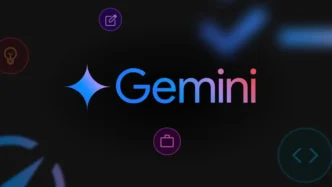Meta hosted its first AI developer conference, LlamaCon, on Tuesday at its Menlo Park headquarters. The event marked a bold new step in Meta’s artificial intelligence push with the introduction of two major initiatives: a Meta AI chatbot app for consumers and a new cloud API for developers to access its Llama models.
These launches are not just about growing Meta’s AI presence. They’re part of a wider strategy to challenge the dominance of OpenAI and other proprietary model providers. Meta’s approach is rooted in building an open-source AI ecosystem, and these new tools are clearly designed to attract both everyday users and developers to its platform.
Meta AI Chatbot: Social, Personalized, and Competitive
The new Meta AI chatbot app is Meta’s direct answer to ChatGPT. But it goes beyond basic interaction. The app integrates a social component where users can share their conversations in a public feed. It also personalizes responses using data from users’ activity across Meta’s platforms, including Facebook and Instagram.
This release seems timed to preempt OpenAI’s rumored social network powered by its own AI. By merging generative AI with social features, Meta is trying to shape how users interact with AI—not just privately, but as part of a shared experience.
Llama API: A Developer-Friendly Cloud Gateway
Alongside the chatbot, Meta rolled out the Llama API, which simplifies how developers can use its open Llama models in the cloud. The API allows developers to connect to these models with just one line of code. This eliminates the need for third-party cloud hosting and makes it easier to integrate Llama into apps and services.
This move positions Meta as a serious competitor in the developer space, directly challenging OpenAI’s profitable API model. By making the tools more accessible and less reliant on external infrastructure, Meta is lowering the barrier to AI development.
Meta has long positioned itself as a supporter of open-source AI. Internal documents and public statements, including a July 2024 letter from CEO Mark Zuckerberg, suggest Meta’s strategy is focused on undermining closed models like GPT-4. Zuckerberg stated that “selling access to AI models isn’t [Meta’s] business model,” drawing a clear line between Meta and rivals like OpenAI.
At LlamaCon, Zuckerberg doubled down on this vision during a talk with Databricks CEO Ali Ghodsi. He emphasized the strength of the open-source community, citing models like DeepSeek and Alibaba’s Qwen as allies, not competitors. “If Qwen is better at something, developers can mix and match models to get the best result,” Zuckerberg said. He believes this open approach will ultimately outperform proprietary AI.
Meta’s open-source strategy may also be about more than ideology or market share. Under the EU AI Act, companies offering “free and open-source” AI tools receive regulatory benefits. Although there is ongoing debate over whether Llama truly meets those standards, Meta continues to present its models as part of that category. If successful, it would give Meta a significant edge in European markets.
Not About Being First, But Being Open
Interestingly, Meta chose not to debut a new cutting-edge reasoning model at LlamaCon, despite expectations from some researchers. The focus instead was on strengthening the infrastructure for open AI tools and supporting developers who want freedom from closed systems.
By launching both a Meta AI chatbot and a powerful Llama API, Meta isn’t just playing catch-up—it’s setting the stage for a new kind of AI ecosystem. One that thrives on openness, flexibility, and collaboration.













